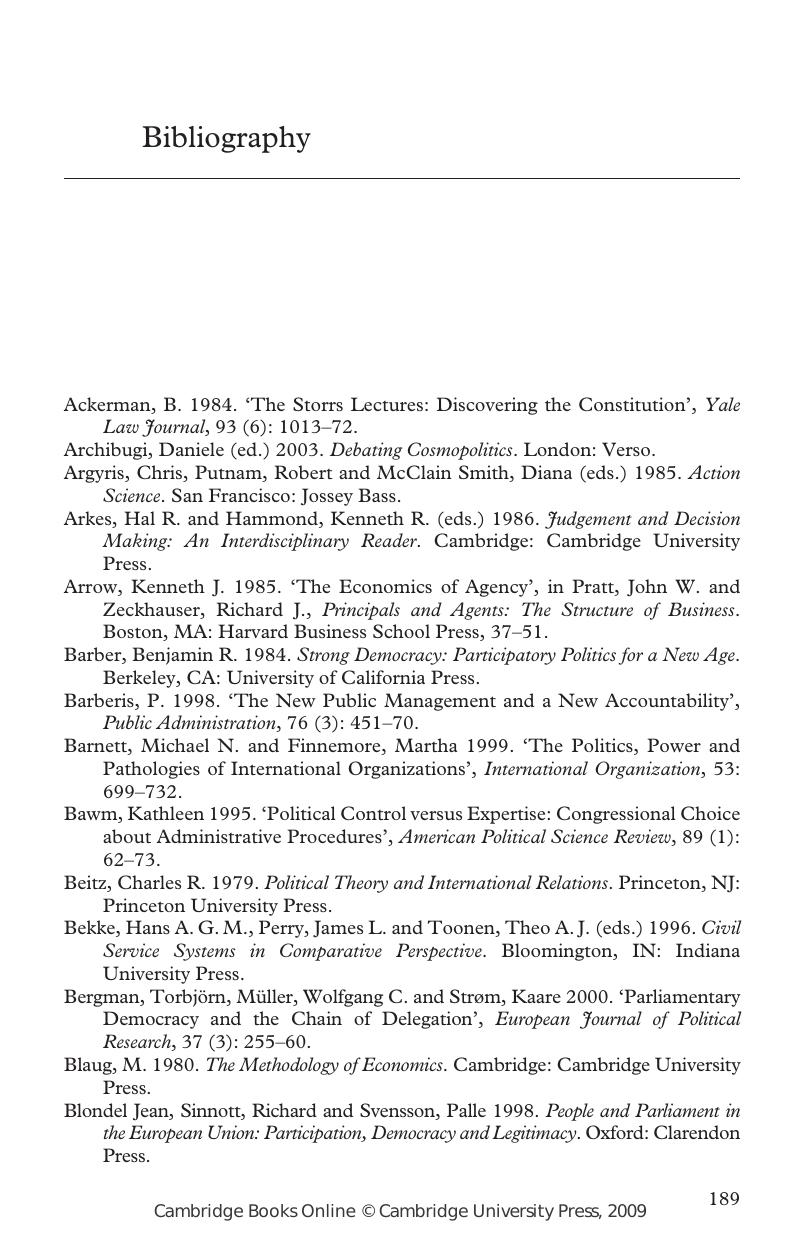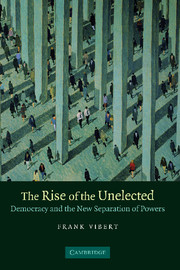Book contents
- Frontmatter
- Contents
- List of boxes, tables and figures
- Acknowledgements
- Introduction
- 1 The world of the unelected
- 2 The driving forces
- 3 The advantages of the new separation of powers
- 4 The challenge to conventional democratic theory
- 5 Adapting traditional approaches
- 6 The new separation of powers and the advent of the informed citizen
- 7 Informed citizens and the changing role of traditional institutions
- 8 The legitimacy of the new branch
- 9 The new separation of powers and the European Union
- 10 International institutions: blurring the boundaries
- 11 Conclusions: the accountability of the new branch
- Appendix: List of unelected bodies referred to in the text
- Bibliography
- Index
- References
Bibliography
Published online by Cambridge University Press: 22 September 2009
- Frontmatter
- Contents
- List of boxes, tables and figures
- Acknowledgements
- Introduction
- 1 The world of the unelected
- 2 The driving forces
- 3 The advantages of the new separation of powers
- 4 The challenge to conventional democratic theory
- 5 Adapting traditional approaches
- 6 The new separation of powers and the advent of the informed citizen
- 7 Informed citizens and the changing role of traditional institutions
- 8 The legitimacy of the new branch
- 9 The new separation of powers and the European Union
- 10 International institutions: blurring the boundaries
- 11 Conclusions: the accountability of the new branch
- Appendix: List of unelected bodies referred to in the text
- Bibliography
- Index
- References
Summary

- Type
- Chapter
- Information
- The Rise of the UnelectedDemocracy and the New Separation of Powers, pp. 189 - 197Publisher: Cambridge University PressPrint publication year: 2007



